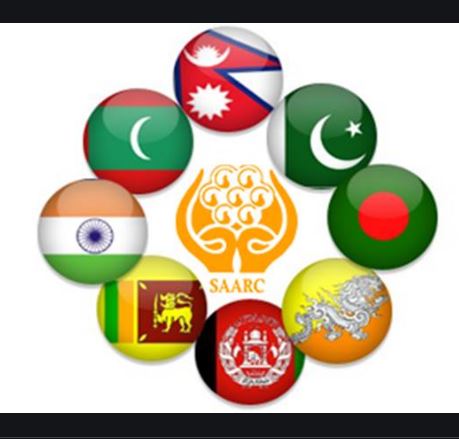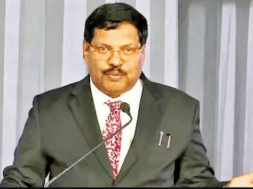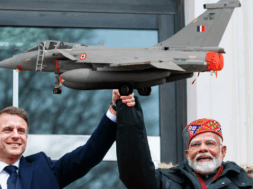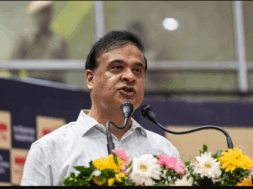
By Venkatesh Iyer
- Pakistan: No Hindu temple permitted
That Pakistan Government is controlled by Islamic fanatics was proved yet again when fundamentalists forced it to stop construction of a Hindu temple in Islamabad recently. The Hindu Panchayat had to halt construction of Lord Krishna’s temple after fanatics destroyed its boundary wall claiming it was “blasphemous”.
In a viral video, a fanatic was seen dismantling the temporary boundary wall. The land for the temple complex in Islamabad included a crematorium, accommodation for visitors, a parking lot and a community hall. It was allotted by Islamabad’s Capital Development Authority (CDA) for about 3,000 Hindus living in and around the capital city. The radical Islamists had opposed sanctioning of a grant for the temple which, they claimed, was against the ‘philosophy’ of Pakistan.
Nepal: Lord Ram born in Nepal!
Even as the preparations for the construction of a magnificent Ram Temple in Ayodhya is in progress—Prime Minister Narendra Modi is expected to visit the temple town shortly—Nepal’s PM KP Sharma Oli has claimed that the Hindu god was a Nepali Prince and born there.
But few were impressed with Oli’s bizarre claim, seen as a desperate attempt to shore up support by raking up anti-Indian forces in Nepal where his government is on the verge of collapse due to internal contradictions within his own Communist Party.
Oli claimed that Ayodhya was located west of Birgunj in Nepal, bordering Bihar. He uttered these remarks while speaking at the 206th birth anniversary celebrations of Nepali Poet Bhanubhakta Acharya, who had translated Valmiki Ramayan in his native language.
Accusing India of “distorting facts”, Oli, who had recently included some Indian territory in Nepal’s map at the behest of China, said even Sita belonged to Nepal. He also made several bizarre claims in this regard.
In Ayodhya, the amused sadhus announced to hold a “Buddhi Shuddhi Yajna” to keep Oli level-headed!
Oli’s claims were condemned even in Nepal by top politicians cutting across party lines. Trying to control the damage, Nepal’s Ministry of Foreign Affairs said Oli’s remarks “were not meant to demean the importance of Ayodhya.”
It also claimed that Oli was simply highlighting the importance of further studies and research of the vast cultural geography that the Ramayana represents.
Sri Lanka: Colombo gets closer to China, again.
President Gotabaya Rajapaksa recently announced that Colombo will review the tripartite agreement signed between Japan, India and Sri Lanka, to develop a port at an estimated cost of USD 700 million. The MOU, signed by the previous government, aimed to develop the new East Container Terminal (ECT) in which Sri Lanka holds 51% stake.
Rajapaksa is trying to distance Colombo from the QUAD (USA, Japan, Australia and India) nations, which all have troubled relations with China. In the last two months of coronavirus-induced lockdown, Sri Lanka has returned to the Chinese-fold for bailouts and even got USD 500 million assistance from Beijing., which has helped Colombo construct a USD 1.5 billion port in return for a 99-year lease to offset the loans.
Bangladesh: Trade for non-basmati rice may resume with India
The resumption of Indian trade with Bangladesh through the Petrapole-Benapole border has raised hopes among India’s non-basmati rice traders for getting fresh orders. Rice consumption in Bangladesh has increased as a large number of people are staying indoors due to continued lockdown.
All old orders before the outbreak of coronavirus are being fulfilled now. India had exported Rs. 21,200 crore worth of non-basmati rice in 2018-19. Bangladesh had levied a duty of 55% on rice which is likely to be reduced now. It will help rice millers from West Bengal since prices have fallen in India where the state governments are offering free rice to the poor people. Exports to Bangladesh will help rice millers recover the cost.
Afghanistan: New Indian envoys to Kabul and Dhaka
New Delhi has appointed experienced envoys to Kabul and Dhaka as an efficient outreach amidst China’s increasing inroads along India’s borders.
Vikram Doraiswamy, a 1992-batch Indian Foreign Service officer (IFS) officer, is going to Bangladesh, replacing the incumbent Riva Ganguly Das. Rudendra Tandon, a 1994-batch IFS officer, will be heading to Kabul, replacing Vinay Kumar.












